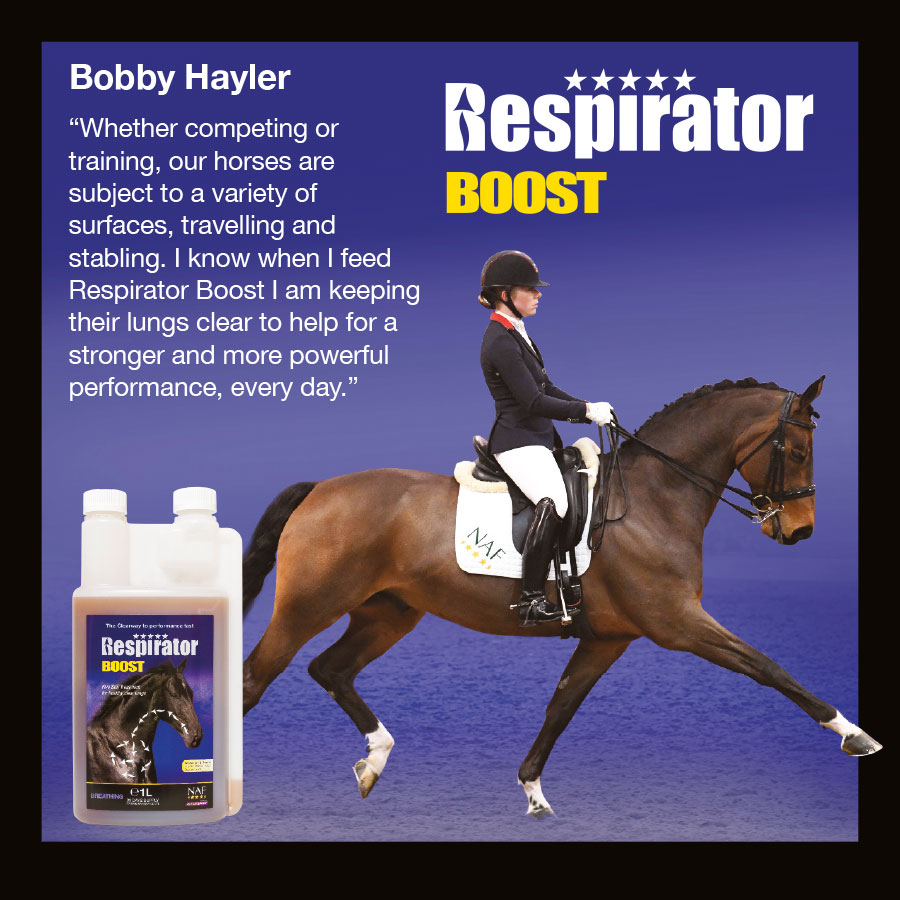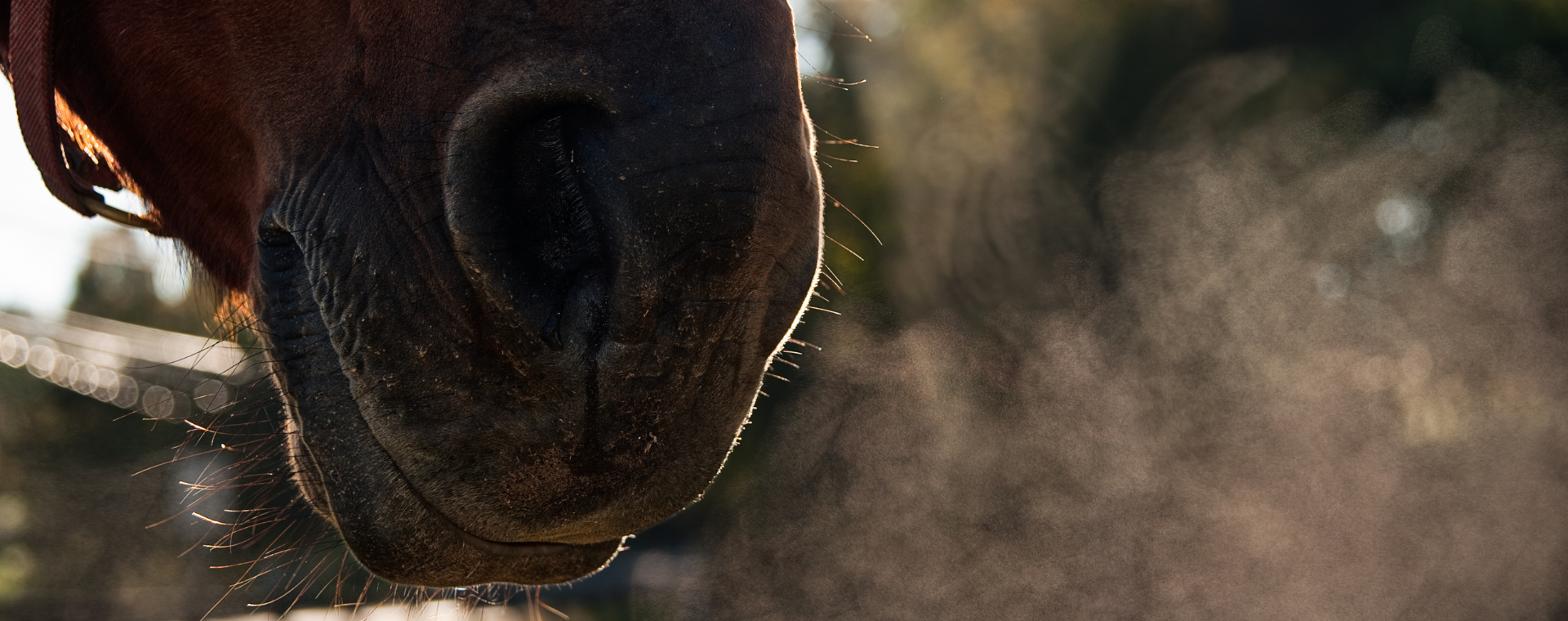Whilst we all welcome the warmer, sunnier days of spring and summer it can be a challenge for some horses and ponies. For us owners, watching the daily Pollen Forecast becomes a must!

NAF Respirator Boost provides valuable nutritional support to the respiratory mucosal immune system and the delicate capillary blood vessels that surround the lungs, and contains a concentrated solution of natural anti-oxidants, alongside herbs such as ginger, rosehip and blueberries, chosen for their targeted support of healthy lung function. Echinacea is also included for immune system support, while the added essential oils help maintain clear airways.
The following is written by Kate Hore RNutr (Animal) R.Anim.Technol Senior Nutritionist at NAF.
Know Their Trigger
Not all pollens are the same, and certainly your horse may notice one far more than another. If you can identify their particular trigger, and take steps to avoid it, your horse will thank you for it. Your vet may be able to help with specific sensitivity testing, though it should be noted this is not a 100% fool proof identification, and they can only test for a relatively small range of the more common triggers.
Owners and riders should be aware of when your horse or pony most seems to react. Is there a certain hacking route, for example past a wood or past a certain crop, such as rapeseed? Or do you notice a difference at different times of day? Knowing the trigger will not only help you with the time of year – tree pollen March to May, grass pollen June to October – but also the time of day. For example, grass releases pollen from around 7.30am, so can be prominent in the morning. Whilst trees typically release their pollen in the afternoon, with peaks later in the day.
When to Ride
We are often asked ‘When is the best time to ride, to avoid the pollen?’ and the answer is not always that easy as many factors affect pollen levels. However, as a general rule, as warm air rises from the ground it carries pollen with it, meaning typically the highest levels are in the heat of the afternoon.
Unfortunately, this doesn’t necessarily mean that cool evenings are best. In the colder air pollen drifts back to the ground, causing a further spike in levels in the early evening. Trees typically release their pollen in the afternoon, meaning peaks later in the day, whilst grass releases its pollen from 7.30am, meaning it can peak earlier in the day.
We know horse riders can be early risers! Therefore, if practical, the best advice for low pollen levels is to ride in that glorious early light that we have before 7am. The best time of the day!
Targeted Nutrition
Published equine research shows that targeted dietary antioxidants can be useful for maintaining a healthy respiratory system, even through times of stress. NAF Five Star Respirator Boost is a fast-acting antioxidant solution designed for use when they need it most. Formulated by NAF’s Vets and Registered Nutritionists, Respirator Boost is designed to defend, optimise lung functions and soothe their airways.
Respirator Boost can be fed daily, complies with the BETA NOPS Scheme, and comes with a Money Back Guarantee for a difference within 48 hours. What have you got to lose?

Available online, in-store, and through our app, here Redpost Equestrian we have a huge selection of supplements from a range of tops brands formulated to support your horse’s respiratory system. Need a supplement in a hurry? Choose Next Day Delivery during the checkout.
Selected Reference: Deaton CM. Jones K & Larkins NJ (2006) Effect of a dietary supplement in [Respiratory Stress] in horses. 2nd European Equine Health & Nutrition Congress. Gent. 108-111. Kirschvink N et al (2002) Effect of nutritional antioxidant supplementation on systemic and pulmonary antioxidant status, [airways] and lung function. Equine Veterinary Journal. Nov:34 (7) 705-12






